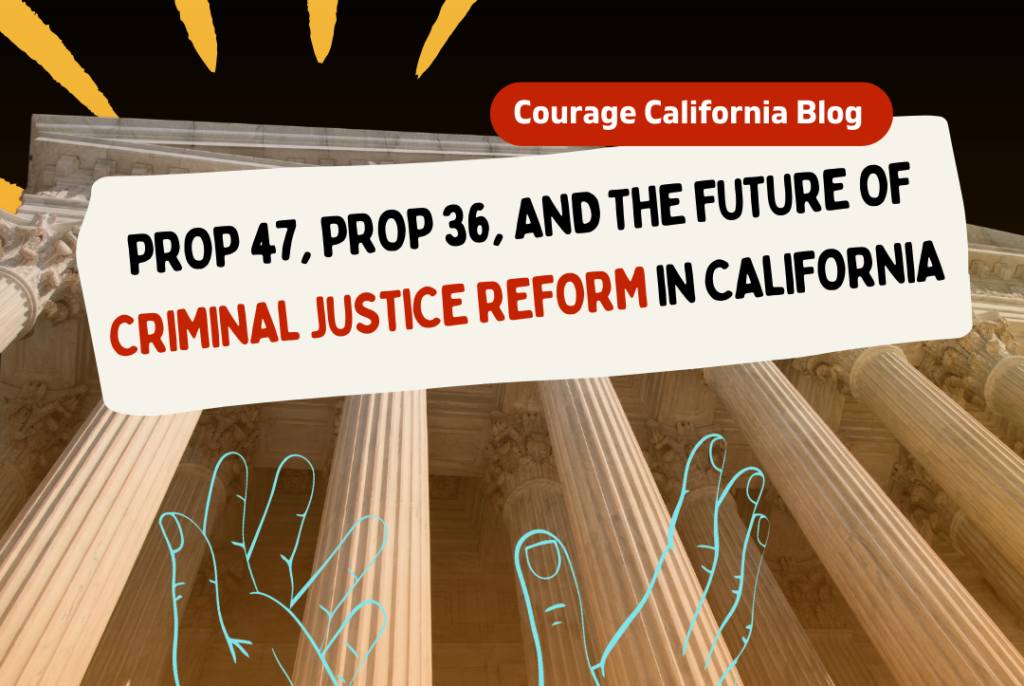In November, Californians will decide on Prop 36, a ballot initiative that reforms the decade-old Prop 47, which voters passed in 2014.
On one side stands the District Attorneys Association and corporations including Walmart, Target, and Home Depot. On the other are California Governor Newsom, Democratic leadership in the California Assembly, and criminal justice and public safety reform advocates.
What is Prop 36, and what does it do?
To understand Prop 36, we have to understand Prop 47. In response to the overcrowded prison system and the ineffectiveness of California’s failed “three strikes” law, Californians were given the option of Prop 47, a ballot initiative that reclassified half a dozen minor felony offenses – including minor drug possession and shoplifting goods worth under $950 – to misdemeanors. The savings from not incarcerating low-level offenders were instead spent on rehabilitation programs and safety measures like drug and mental health treatment, homelessness prevention, and victim services centers.
Studies have found that Prop 47 had a lot of benefits, including falling crime rates, a reduced prison population, reduced recidivism, and more than $800 million in savings for the state’s taxpayers. However, retailers and tough-on-crime police organizations have claimed that retail theft is climbing now that the likelihood of arrests has lessened. In more than 90% of reported thefts, no one is arrested but reported thefts have not increased since the passage of Prop 47.
Prop 36 builds on the misleading narrative that crime is on the rise in California. It returns “three strikes” law enforcement by charging a shoplifting offender with a felony on the third offense no matter the value of the goods stolen. Prosecutors can also add unrelated thefts, over a three-year span, to reach the $950 felony threshold. It also allows judges to charge drug possession as a felony in certain cases.
Who is behind the proposition?
Corporations including Walmart, Target, and Home Depot have poured millions of dollars into furthering the myth that crime is increasing in the state. More than half of people in cities polled said that they felt like their cities were less safe, despite statistics to the contrary.
Meanwhile, California Governor Gavin Newsom and Democratic leadership have been fighting against Proposition 36, with Newsom saying, “It’s really drug policy reform that brings us back decades. I’m very concerned about that. I hope people take a close look at what they’re proposing.” Currently, the Democratic leadership is working on a legislative package that would address concerns with Prop 47 and make Prop 36 unnecessary.
However, some Democrats in purple districts are concerned about showing opposition to Prop 36, such as Central Valley State Senator Melissa Hurtado (Courage Score: 68), who accepts substantial retail and cop money and has come out in support for the ballot initiative.
what options does California have?
Prop 36 is a huge step backward and will do nothing to make our communities safer, but will overcrowd our prisons even more, line the pockets of for-profit prison corporations, and take funds away from successful rehabilitation and recidivism programs. It’s critical that voters get the truth about so-called “tough on crime” legislation and how it harms criminal justice reform in California.
Courage California urges voters to reject Prop 36 on Nov. 5 – which undermines the will of the voters and only harms the progress our state has made – and support legislators who are working to pass data-informed public safety laws like the #SmartSolutions policy platform, which is supported by Courage.
Californians are encouraged to learn more about the smart public safety solutions making their way through the state legislature and tell their legislators to vote with Courage!

